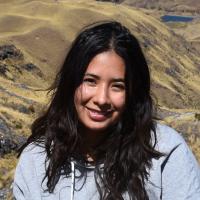
Study Shows Curricular Knowledge Can Boost Student-Centered Teaching
For over two decades, science education researchers have been exploring what it takes to teach science successfully. It turns out, teacher-led lectures may not be the most effective approach.
A recent report co-authored by Carol Pazera, a senior research analyst at the Dana Center, examined the role of teachers’ knowledge of curriculum in helping teachers adapt to new science standards, such as the Next Generation Science Standards (NGSS).
Adopted by most states, NGSS is based on A Framework for K-12 Science Education and calls for a major shift from a more teacher-directed approach to a student-centered one. The new standards require teachers to guide students to a deeper understanding of science by eliciting curiosity, student questions, and collaboration among peers.
“How Teachers’ Knowledge of Curriculum Supports Partnering with Students in Their Science Learning,” published in the Journal of Science Teacher Education, outlines key research findings.
Go to Study
Study Overview
The study took place during a large-scale field test in which over 200 teachers implemented an open-source, middle school science curriculum, OpenSciEd, which was designed to meet NGSS. The Dana Center not only participated in the development of middle school units, but also led data collection efforts.
State education representatives in 10 states recruited 6th, 7th, and 8th grade science teachers to participate in the field test. Teachers provided feedback on the curriculum as well as the impact of curriculum-based professional learning on their teaching and student learning. Based on data collected (e.g., end of unit surveys, student exit tickets, teacher interviews), revisions were made to field-tested units before the OpenSciEd curriculum was released for public use. 
Over a three-year period, including during the pandemic, researchers interviewed a different set of 30 participating field test teachers each semester to capture a wide range of teacher experience. Of those participants, 36 teachers were included in this study sample. Interviews included questions about their instructional experience over the course of the field test.
"By analyzing what teachers said, the research explores whether providing professional learning centered on a particular curriculum helps teachers learn and teach," said Pazera.
Why Focus on Curricular Knowledge?
Professional learning for science teachers has often focused on pedagogy or general teaching strategies, but very rarely has it centered on knowledge of curriculum.
What happens when science teachers are prepared with the value, structure, and methodology behind a given curriculum? And how could this knowledge impact their ability to teach science-as-practice?
Throughout the study, teachers participated in professional learning where they interacted with lessons from the student’s perspective. When teachers were given the opportunity to put themselves in “student hat,” they developed a deeper understanding of how to execute the unit.
Notably, working with other participants in the field test provided teachers with a space to share insights and improve their teaching strategies. One teacher shared how “seriously, authentically engaged” she was during a professional learning session and how that elicited inspiration: “How do I get my kids to feel like that?”
Research Findings
Over 70% of teachers described shifts in the way they taught science after gaining more knowledge about the curriculum through instructional materials and associated professional learning. One teacher stated the experience “helped [her] change from teaching the PowerPoint” to a dynamic that positioned students as “knowledge builders.”
It was a big change for a lot of teachers. But for most of these practices, teachers indicated they got better over time, and that the curriculum itself helped them get better,” said Pazera.
From helping students connect core ideas to pushing students to use evidence to revise their conclusions, teachers reported growing confidence in their new role. “It takes me off the stage and I’m a learner with [students]” said one teacher.
When teachers are equipped with curricular knowledge, their confidence in their ability to teach science effectively improved over time. According to the article, there is “promising evidence of sustained professional learning that highlights how instructional routines and discussion can support student sense making in science.”
Although some challenges remain on how curriculum can best support teachers, curriculum knowledge does make a difference.
Go to Study
About the Author
Genesis Moreno
It’s been both a challenge and an incredible joy to discover the right combination of words to share an idea. Dedicating my career to exploring creativity has led me to meaningful work that empowers others. Working at the Charles A. Dana Center is where my passion for purpose and creativity meet.
Get in Touch
How can the Dana Center work with you to ensure that our nation's students are ready for postsecondary education and the contemporary workforce?

